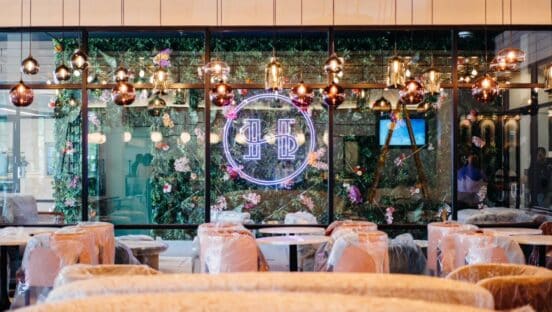Whether it's composting, using biodegradable packaging, or opting for LED lighting, sustainability is all the rage in the restaurant industry. And some brands, like fast casual Roti Mediterranean Grill, are applying the philosophy to their proteins, too.
The brand recently added sustainable Atlantic salmon to its menu, an item that’s served within five days of being harvested from the Atlantic Ocean in Northeastern Canada. The protein comes on the heels of the addition of FreeBird-brand chicken, which is antibiotic-free and naturally raised in Pennsylvania’s Amish Country.
“Fish is the key part of the Mediterranean diet, and so that’s important to us,” says Peter Nolan, director of marketing at Roti. He says salmon’s omega-3 fatty acids make it a healthy choice, too, which fits in with the brand’s philosophy and the desires of its customer base.
The salmon marks a departure from a version the brand tested in a handful of stores in the past. “It was a Chilean salmon that was flown in frozen, which was OK, but that’s not where we want to go,” Nolan says. “We want to have higher-quality ingredients and support more sustainable practices all the way up through the food chain.”
Nolan says customers appreciate sustainable products and packaging for several reasons. “You have people who, for health reasons, want to eat food that’s more natural, less processed. … And then there are people who are eating it for environmental reasons. The food that they eat, they want it to have the minimal environmental footprint," he says. "And then there are people, for economic justice reasons, that really want to support smaller farms and the folks who make their livelihood … ranching and raising chickens."
And not only are these products better for the environment, he says, but they also taste better. “We did blind side-by-side taste tests with antibiotic-free chicken and conventional chicken, and … it was pretty overwhelming that [guests] like the antibiotic-free chicken better, and the same thing with the salmon.”
But as to be expected, there have been some challenges to sourcing and serving these sustainable products.
“There’s a price premium, and we raised our prices a little bit,” he says. “In terms of getting the shelf space within the distribution center, you have to be a little bit persuasive and you have to really set the vision of what you’re trying to do as a business and how you’re going to grow.”
Despite these difficulties, Nolan says he expects other brands in the limited-service industry to try their hand at menuing sustainable proteins. “I think it’s going to become the norm quite frankly, because the customers want it. And as there’s more demand, the supply will increase and … the difference in pricing relative to conventionally grown meat will be less.”
He says a number of the brand’s competitors are already serving products like antibiotic-free chicken.
Though its health-oriented customer base means the brand doesn’t sell a lot of beef, Roti would like to also find a sustainable beef source to round out its menu, Nolan says.
“We need to do a good job creating a better food system all the way through. We’re very committed to that," he says. "It’s our company’s values and it’s our responsibility as a restaurant. Change can be hard, but it’s worth it.”
By Mary Avant

